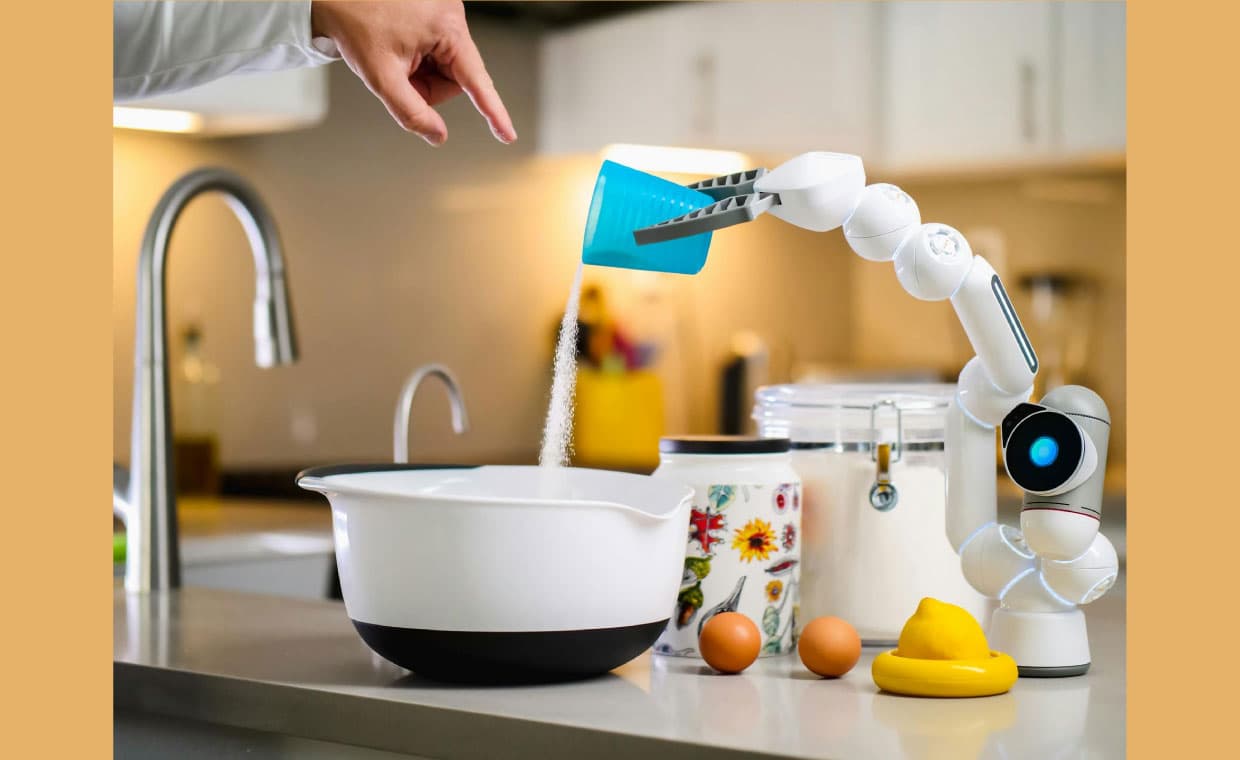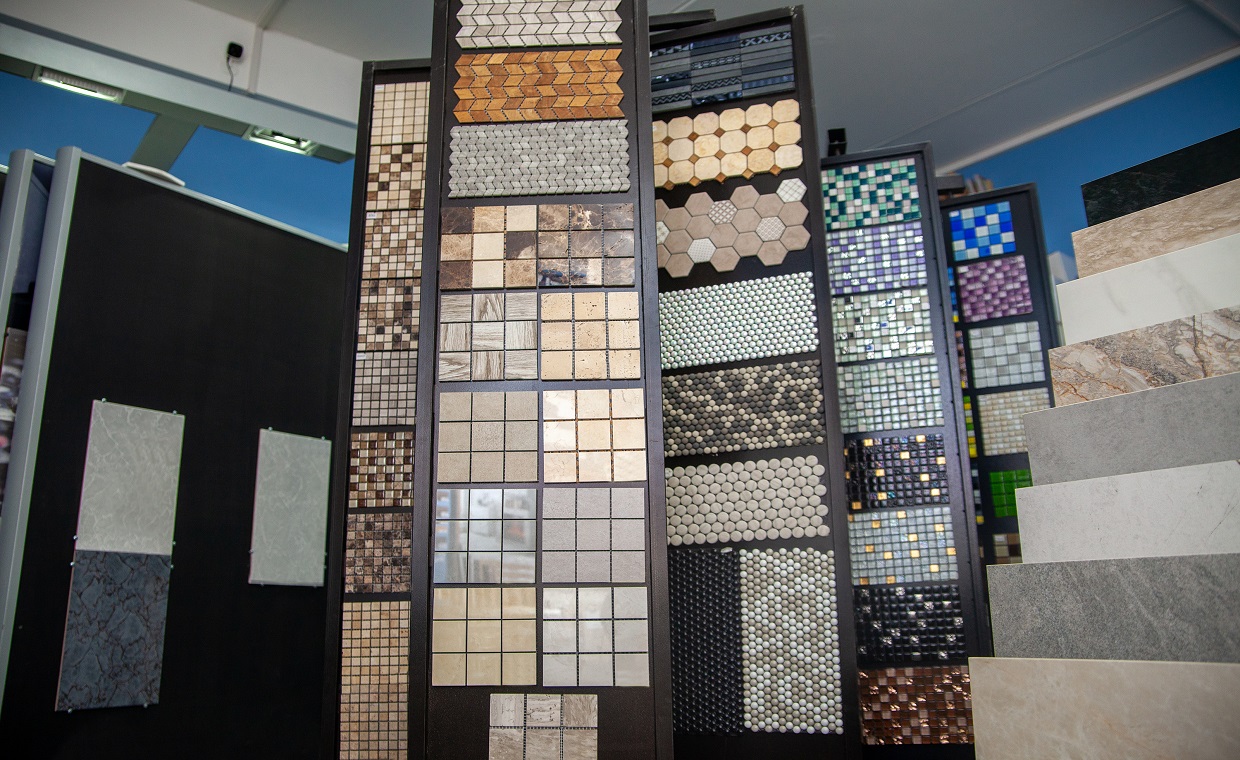
Imagine your kitchen helping you stay healthy. With smart design, you organize food storage for easy access to fresh ingredients. Innovative gadgets streamline meal prep, and appliances track nutrition seamlessly. This article dives into smart kitchen design for fostering healthier lifestyles, exploring how they support weight management and sustainability efforts through clever designs.
From automated habits to eco-friendly setups, learn practical tips that blend lifestyle choices with emerging tech trends.
1. Your Smart Kitchen Design and A Healthy Lifestyle: The Connection

While they say we’re what we eat, where and how also matter. The kitchen serves as a cornerstone for fostering healthier living habits. Its design significantly influences your dietary choices, from food accessibility to meal preparation convenience.
Incorporating smart elements such as organized storage, ergonomic layouts, and modern appliances can help you create nutritious meals effortlessly. Weight management becomes simpler when your kitchen is a supportive environment for wellness goals.
Such changes combined with approaches like the Wegovy weight loss solution that’s making waves in medical circles emphasize holistic health management strategies. This blend of technology with lifestyle improvements fosters a lasting impact on well-being.
2. Exploring Smart Kitchen Appliances for Healthier Eating

How you make your meals also impacts your health. Modern smart appliances transform cooking by providing efficiency and accuracy, reducing the temptation to choose unhealthy options.
Refrigerators with cameras help track freshness, while smart ovens guide optimal cooking times and temperatures for nutrition preservation.
Such devices create a seamless experience where healthy eating becomes a natural choice. Better yet, they integrate effortlessly into your routine without compromising taste or convenience.
3. Designing Eco-Friendly Kitchens for Sustainable Living

Perhaps now more than ever, a part of healthy living includes being mindful of your impact on Mother Nature. Eco-friendly kitchen designs emphasize energy efficiency and waste reduction, encouraging sustainable habits.
Selecting appliances with energy-saving modes and incorporating compost systems make kitchens greener. Various materials like bamboo or recycled countertops reduce ecological footprints while maintaining style.
Considering different types of kitchen layouts maximizes natural light use, minimizing the need for artificial lighting. These thoughtful choices cultivate a healthier planet alongside healthier lifestyles.
4. Personalized Cooking Guides and Nutrition Tracking Tech

Today’s kitchen can empower healthier living with personalized cooking guides and nutrition-tracking tech. Apps and devices tailor meal suggestions based on dietary preferences, ensuring balanced nutrient intake.
Incorporating these Innovations:
- Integrate apps that suggest recipes from available ingredients
- Use smart scales to monitor portion sizes accurately
- Employ sensors to track the freshness of stored food
This blend of technology into everyday routines enhances the dining experience while promoting well-being through precise dietary management.
5. Integrating Composting Systems to Reduce Food Waste

Proper garbage management doesn’t just help keep your home pest-free. It contributes significantly to sustainability efforts. Using composting systems to do so also transforms kitchen waste into valuable nutrient-rich soil, closing the loop in your food cycle.
Incorporating countertop composters or under-sink models ensures that peels and scraps return as earth-friendly fertilizers. This practice minimizes landfill contributions and enhances garden productivity. Think of fresh, homegrown veggies and herbs full of nutrition.
Such integration offers a practical solution for eco-conscious individuals aiming for a sustainable lifestyle without sacrificing convenience or aesthetics.
6. Creating Meal Prep Stations for Easy Access and Efficiency

Imagine cooking with ease as every ingredient finds its place. Designing meal prep stations boosts efficiency by organizing your space logically.
These setups often include dedicated zones for chopping, mixing, and assembling dishes. Accessibility to essential tools fosters a seamless culinary flow that saves time while reducing stress.
By encouraging you to cook more at home, these stations support healthier eating habits and promote mindful food choices in your daily routine.
7. Leveraging Smart Kitchen Storage Solutions for Freshness Maintenance

Smart kitchen design also means making storage a priority to keep food fresher longer. Innovative solutions like vacuum-sealed containers and climate-controlled cabinets maintain optimal conditions, reducing spoilage.
Strategically organized pantries offer visibility of ingredients, minimizing the risk of overlooked perishables. With freshness assured, healthier choices become easier and more appealing.
These advancements ensure that every meal utilizes quality ingredients while cutting down on waste, aligning with both wellness and sustainability goals.
8. Smart Kitchen Lighting to Influence Mood and Appetite Control

Did you know that light can have an impact on how much or what you eat? Smart lighting technology offers customizable options that enhance dining environments, affecting both mood and appetite.
Warm, dim lights create a relaxing ambiance conducive to mindful eating. Conversely, brighter settings stimulate alertness for active meal prep.
Conclusion
Incorporating these systems into kitchen design enriches the overall culinary experience while subtly guiding healthier lifestyle choices through intentional atmosphere control.
Smart kitchen design not only supports healthier living but also nurtures sustainable habits. These innovations create an environment where well-being thrives, seamlessly blending technology with mindful choices for a brighter future.
Also Read: 19 Best Smart Kitchen Gadgets that’ll make Your Lifestyle Smarter!






























